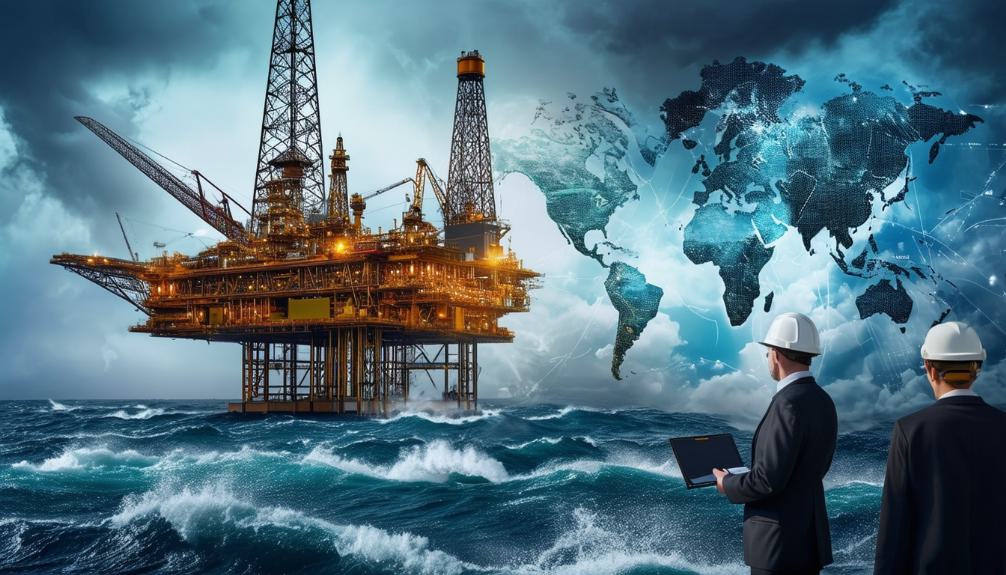Sailing maritime laws can be tricky, that's where offshore accident lawyers shine. They know the ins and outs of admiralty law and the Jones Act, ensuring you get the compensation you need after an accident at sea. These legal experts specialize in maritime cases, offering tailored guidance to secure your rights.
From understanding complex regulations to negotiating fair settlements, they've got you covered. With a contingency fee structure, you only pay if you win, making quality legal representation affordable.
Stay tuned to discover seven key reasons why an offshore accident lawyer is your best ally in maritime mishaps.
Key Takeaways
- Specialized expertise in maritime law for offshore accident cases.
- Ensure accurate evaluation of Jones Act qualifications for coverage.
- Contingency fee structure ensures fair compensation without upfront costs.
- Navigate complex maritime regulations for rightful compensation.
- Advocacy for offshore accident victims to secure deserved settlements.
Understanding Admiralty Law
Exploring the intricate world of admiralty law requires a profound understanding of maritime legal principles. Admiralty law, also known as maritime law, governs activities on navigable waters, covering essential aspects like shipping, salvage, sailing, and marine pollution.
Maritime attorneys, often referred to as maritime lawyers, specialize in this complex field, particularly in handling cases related to offshore accidents. When it comes to offshore accidents, having a knowledgeable maritime lawyer by your side can make a significant difference. These legal professionals possess extensive experience and expertise in maneuvering the intricacies of admiralty law, ensuring that individuals involved in maritime activities receive proper legal representation and recourse.
Understanding admiralty law is crucial for anyone operating in the maritime industry, especially in scenarios where offshore accidents occur. By enlisting the support of a skilled maritime lawyer, individuals can effectively navigate the legal intricacies surrounding maritime incidents and safeguard their rights in the event of unforeseen circumstances at sea.
Jones Act Qualifications
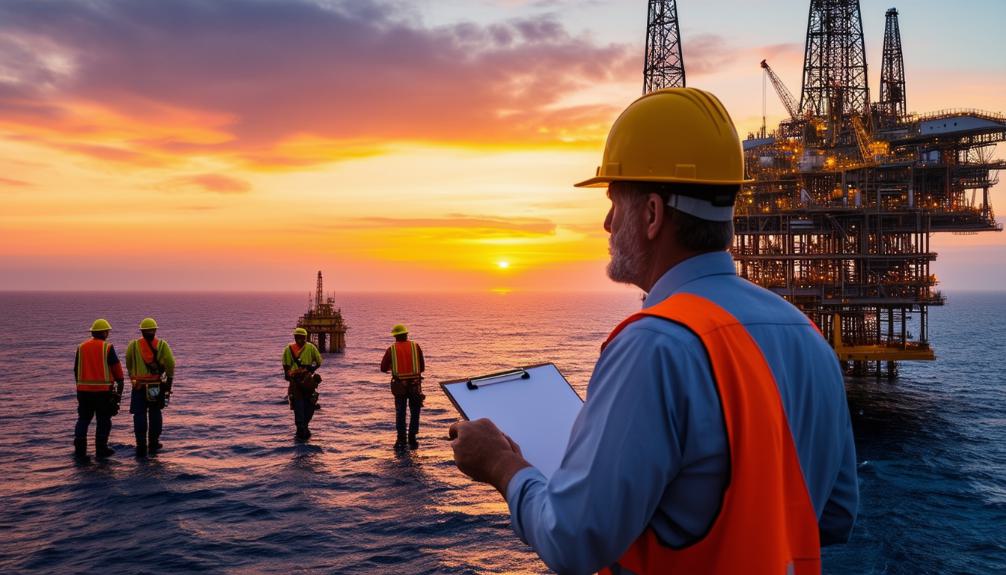
Qualifying as a Jones Act seaman hinges on the specific duties and location of an individual's work within the maritime industry. If you work on a mobile rig or platform, chances are you meet the qualifications for protection under the Jones Act.
In 1995, the Supreme Court set criteria in the Chandris, Inc. v. Latsis case to determine who qualifies as a Jones Act seaman. Surprisingly, even if you get injured during transportation to or from an offshore rig, you could still be covered by the Jones Act.
However, understanding these qualifications can be intricate. That's why it's vital to seek guidance from experienced maritime attorneys. They have the knowledge and expertise to evaluate your situation accurately.
Protected Vessels Under Jones Act
Vessels protected under the Jones Act encompass a diverse range, including tug boats, supply boats, tankers, cruise ships, and fishing boats. This means that maritime workers on these types of vessels are entitled to legal protection if they suffer a maritime injury while on duty.
It's important to note that the Jones Act covers injuries not only when the vessel is at sea but also when it's docked. This broad scope ensures that maritime workers have the necessary support in case of accidents or mishaps.
Moreover, understanding the statute of limitations is crucial for maritime workers seeking legal recourse. The Jones Act allows a three-year window for filing cases related to maritime injuries. This timeframe emphasizes the importance of taking timely action to guarantee that your rights are protected.
Additionally, the Jones Act extends coverage to wrongful deaths of maritime workers on U.S. territorial waters, providing a detailed legal framework for those in the maritime industry.
Importance of Maritime Lawyers
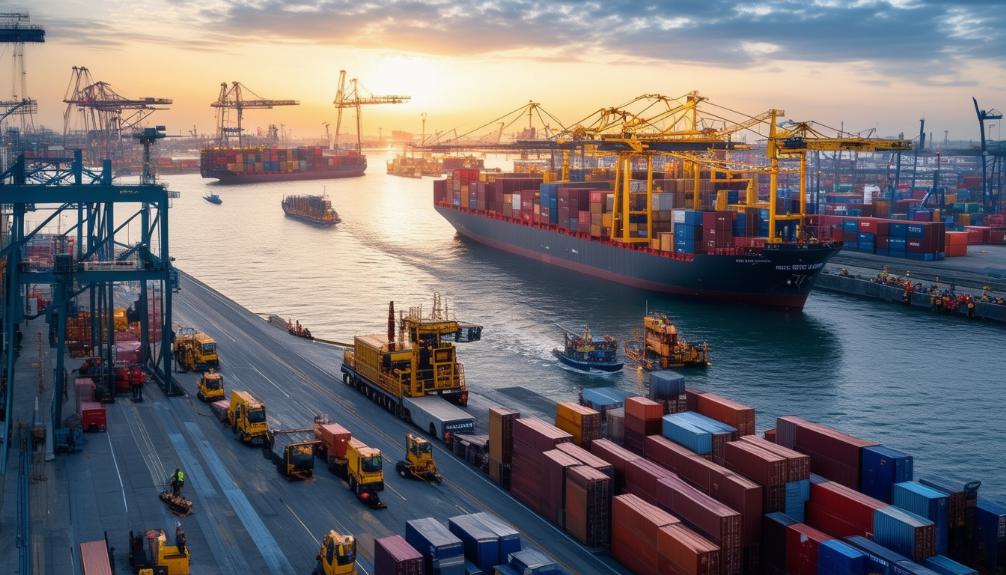
Maritime lawyers play a significant role in providing specialized legal representation for individuals involved in maritime-related cases, offering expertise in understanding the intricacies of maritime law.
These professionals specialize in handling legal matters concerning activities on navigable waters, such as shipping, salvage, and marine pollution.
Maritime lawyers are vital for individuals like seamen, sailors, and maritime workers who may require assistance with offshore injury cases. They possess in-depth knowledge of maritime law, including the distinctions between the Jones Act and broader maritime regulations.
Seeking guidance from a maritime lawyer is essential in maritime injury cases to guarantee proper legal recourse and maximize compensation for the affected individuals.
With their specialized skills and experience, maritime lawyers can navigate the complexities of maritime law to help clients secure the compensation they deserve in the event of accidents or injuries at sea.
Specialized Legal Expertise
When facing an offshore accident case, having a lawyer with specialized legal expertise is essential. These experts can provide the guidance needed to navigate the complexities of maritime laws and regulations.
Their precision in evaluating cases can greatly impact the outcome and help you secure the compensation you deserve.
Expert Legal Guidance
For best outcomes in offshore injury cases, engaging an attorney with specialized knowledge of oil field accidents is crucial. An offshore injury lawyer with expertise in this field can provide the expert legal guidance needed to navigate the complexities of offshore accidents.
These specialized attorneys understand the unique hazards and regulations of the industry, ensuring they can offer thorough legal representation to offshore accident victims.
With their experience, maritime lawyers can skillfully negotiate settlements and advocate for clients in court, maximizing compensation for medical bills, lost wages, and emotional trauma. Their knowledge of liability laws and the various types of damages available further enhances the chances of recovering fair compensation for those affected by offshore accidents.
Case Assessment Accuracy
An offshore accident lawyer with specialized legal expertise can accurately evaluate the strength of your case by leveraging their industry-specific knowledge and experience. These attorneys delve deeply into understanding the unique hazards present in offshore environments, enabling them to provide a thorough evaluation of your legal options.
By being well-versed in the regulations governing maritime activities, they guarantee that no detail is overlooked in evaluating your case accurately.
Their proficiency in navigating the intricate legal processes surrounding offshore accidents allows them to map out a clear path for your case, maximizing the chances of securing rightful compensation. Drawing from their wealth of experience in negotiating settlements and representing clients in court, these lawyers bring a heightened level of precision to case evaluations.
Their expertise in liability laws and the various types of damages available equips them to predict potential outcomes, giving you a realistic understanding of what to expect as your case unfolds.
Comprehensive Compensation Recovery
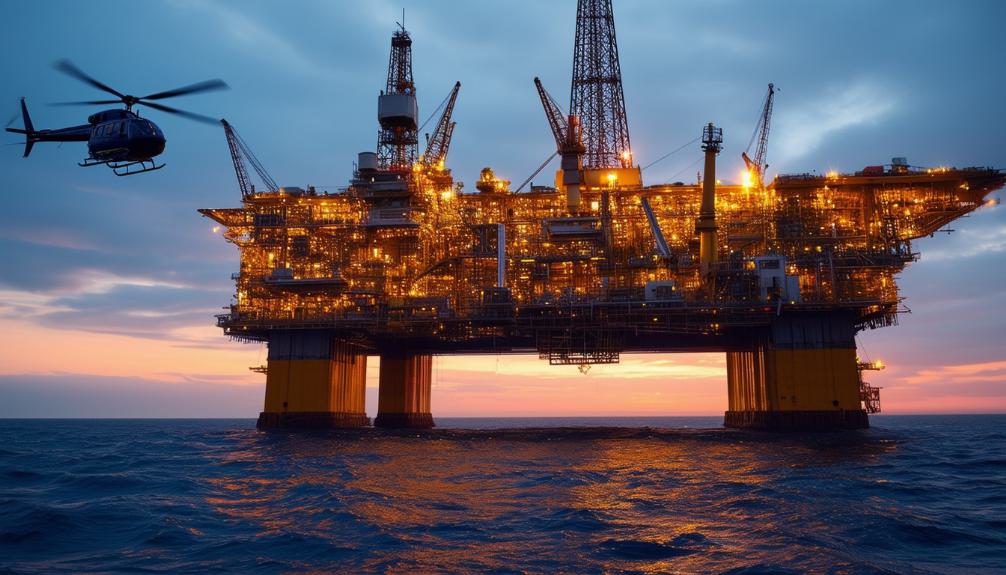
Offshore accident lawyers specialize in ensuring a detailed and all-encompassing recovery of compensation for individuals impacted by accidents at sea. They meticulously assess each case to maximize the compensation recovered, considering various factors such as medical bills, lost wages, emotional trauma, and even wrongful death. Through expert negotiation skills and a deep understanding of maritime laws, these lawyers aim to secure all-inclusive compensation for their clients.
—
| Benefits of Offshore Accident Lawyers for Compensation Recovery | Description |
|---|---|
| Financial Recovery | Assistance in reclaiming medical expenses, lost income, and disability benefits. |
| Emotional Trauma Compensation | Pursuit of compensation for pain and suffering caused by the offshore accident. |
| Negotiation Expertise | Effective negotiation strategies to maximize compensation amounts. |
| Resource Access | Providing access to specialized resources and expertise for successful compensation recovery. |
Affordable Legal Representation
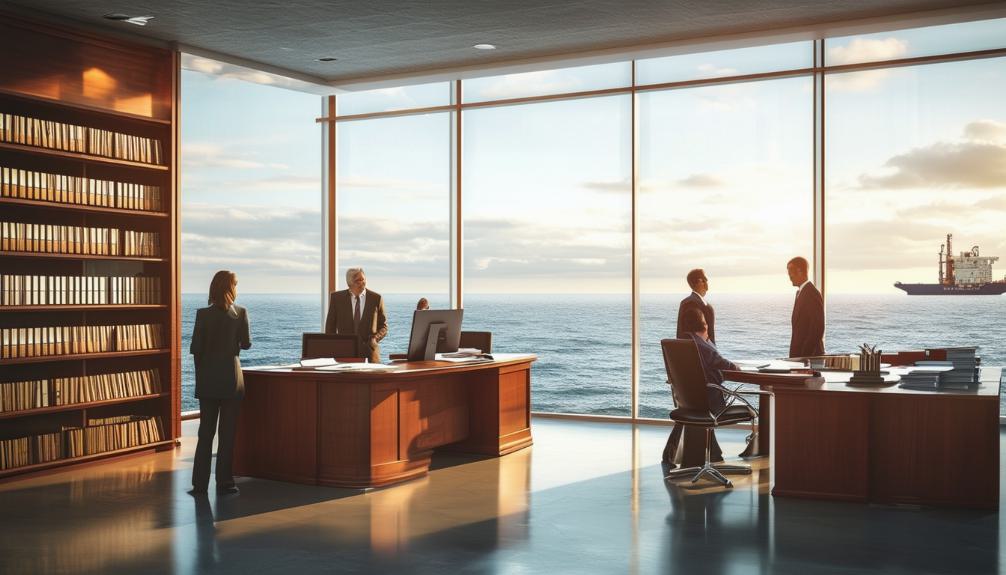
Securing legal representation after an offshore accident can be made more financially feasible through the common practice of contingency fee arrangements. Offshore accident lawyers often work on a contingency fee basis, meaning you only pay if you win your case. This fee structure makes legal representation more affordable for victims of offshore accidents.
Envision the relief of not having to worry about out-of-pocket expenses if your case doesn't result in compensation. Contingency fees not only benefit you but also provide financial motivation for lawyers to deliver high-quality representation. By opting for this fee arrangement, you guarantee that you receive the compensation you deserve without added financial stress.
Frequently Asked Questions
What Is an Offshore Accident?
Offshore Accident: Understanding the Risks and Legal Implications
Offshore accidents can occur on oil rigs, platforms, or vessels at sea due to various factors such as equipment failure, human error, and hazardous conditions. In such cases, seeking compensation for injuries resulting from negligence is common. Let's explore this topic further:
Q: What are the common causes of offshore accidents?
A: Offshore accidents can be caused by equipment failure, human error, and hazardous working conditions. These factors can lead to serious injuries and even fatalities on offshore oil rigs, platforms, or vessels.
Q: What legal implications are involved in offshore accidents?
A: Legal implications in offshore accidents often revolve around seeking compensation for injuries sustained due to negligence. This may involve holding responsible parties accountable for their actions or lack of proper safety measures.
Q: How can offshore workers stay safe and prevent accidents?
A: Offshore workers can stay safe by following proper safety protocols, undergoing regular training, using personal protective equipment, and reporting any hazards or concerns to their supervisors. Vigilance and adherence to safety guidelines are crucial in preventing accidents in offshore environments.
Q: What should I do if I am involved in an offshore accident?
A: If you are involved in an offshore accident, it is important to seek medical attention immediately and report the incident to your employer. Documenting the details of the accident and seeking legal advice can help protect your rights and ensure proper compensation for any injuries or damages incurred.
Conclusion
To sum up, hiring an offshore accident lawyer can be essential for maneuvering through the complexities of admiralty law and ensuring you receive fair compensation.
Did you know that nearly 2,000 offshore workers are injured each year?
Having the right legal representation can make all the difference in protecting your rights and securing the compensation you deserve after an accident at sea.

